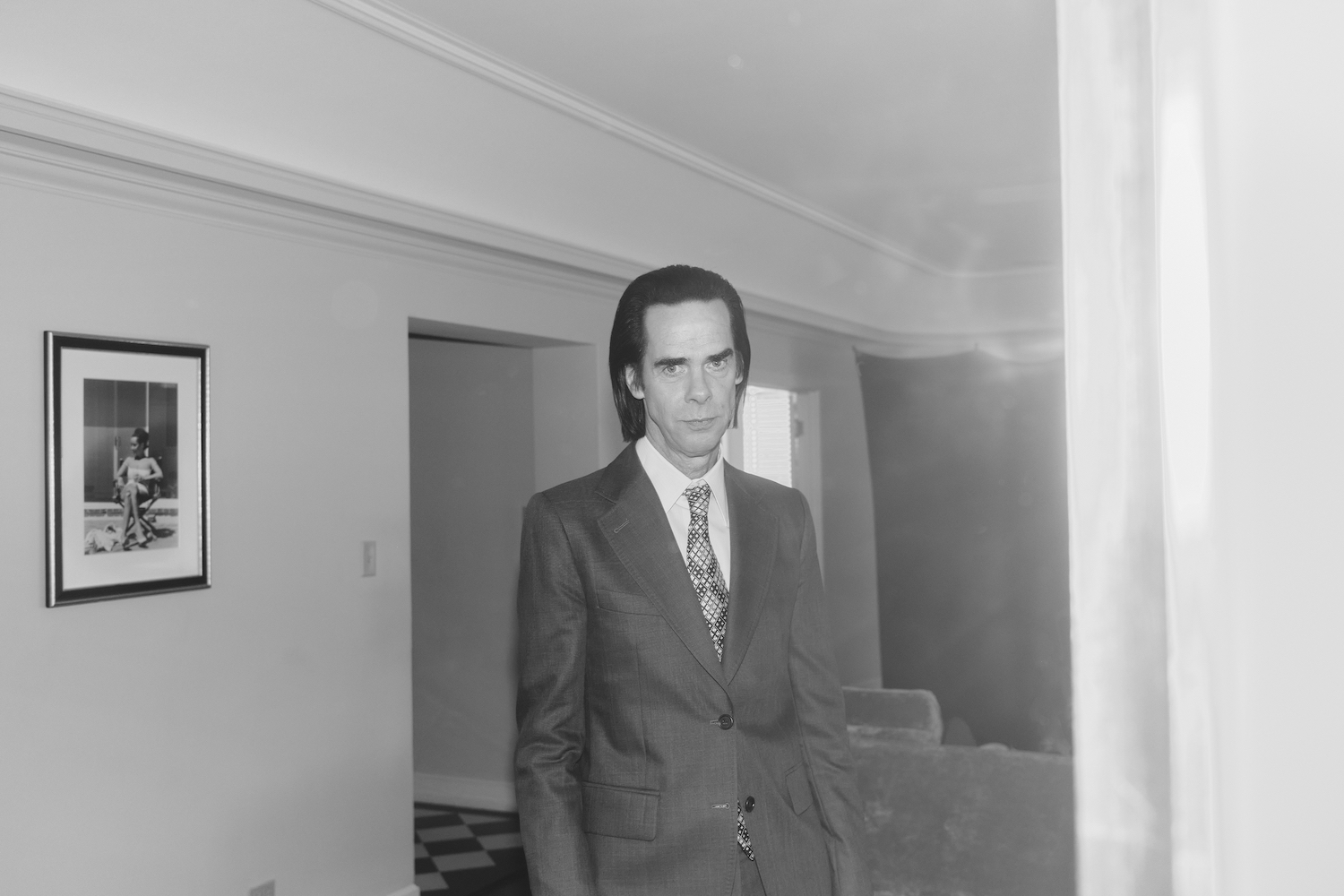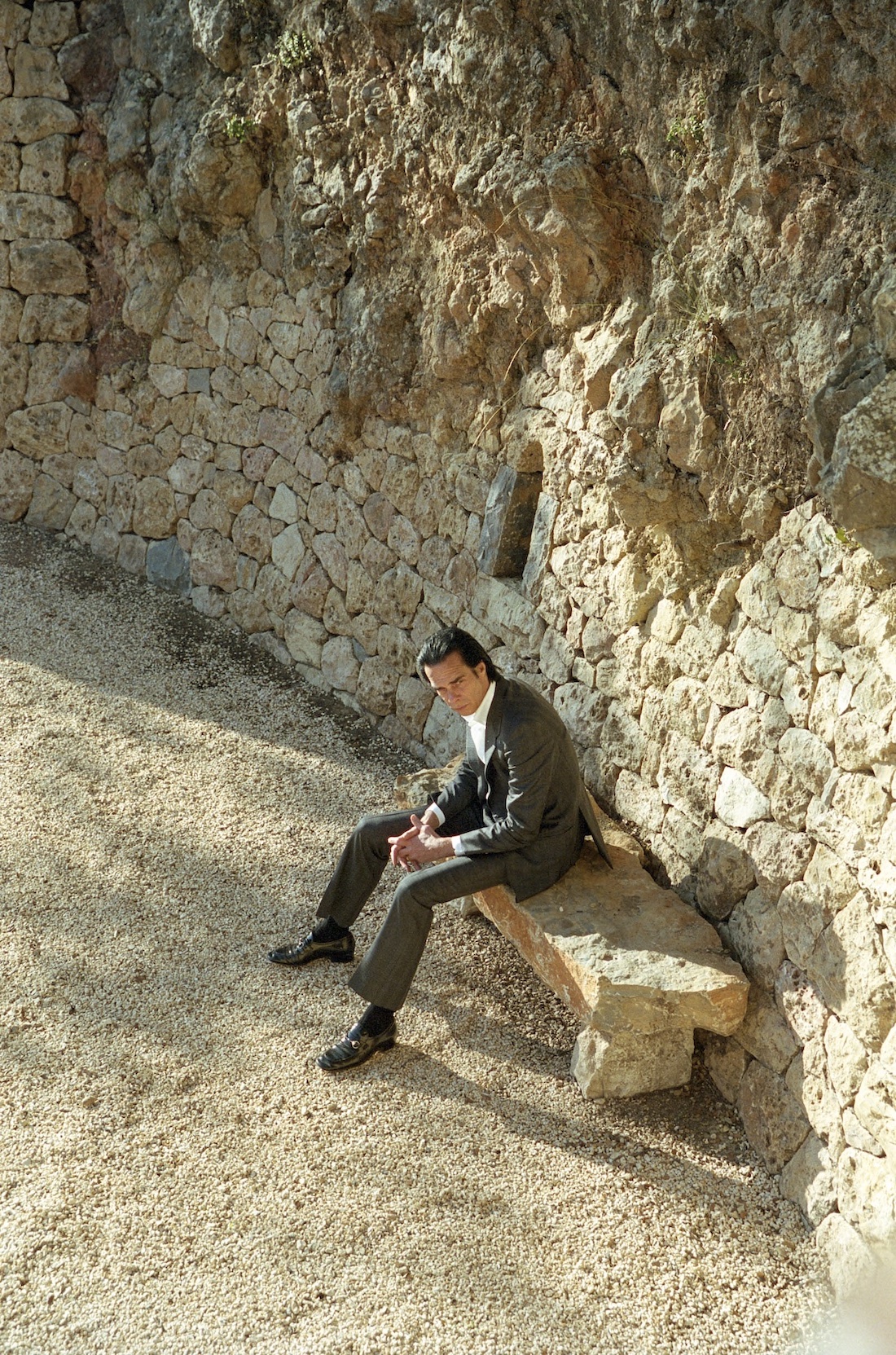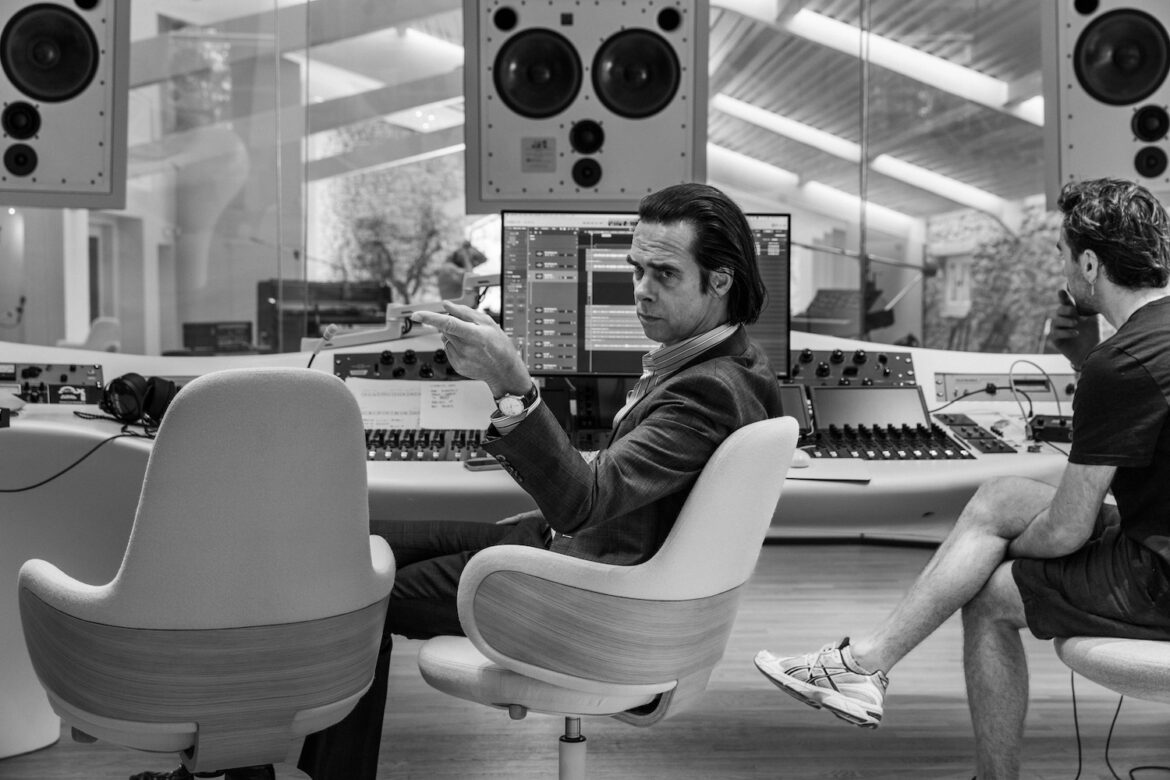The new Bad Seeds album captures all the strangeness, joy, and rumination Nick Cave has promised. Truly a mesmerising listen, ‘Wild God’ takes listeners out of the darkness and guides us into the light.
Stream: ‘Wild God’ – Nick Cave & The Bad Seeds
When reviewing a new album, I’m cautious about writing just another ‘rave’ review that lacks any genuine commentary.
It’s easy to feel like a review should be entirely promotional, but I don’t want this to read like a projection of a publicist’s spiel.
With that said, The Bad Seeds are back, and it’s like they never left. Sure, Nick Cave and Warren Ellis spent some time exploring liminal spaces in their synth-trilogy, leaving some listeners less than impressed with Skeleton Tree, Ghosteen, and Carnage. But this critique seems to entirely lack empathy. The cataclysmic tragedy surrounding the death of Cave’s son in 2015 leaves no room for doubt as to why these albums articulate a sound apposite for a spectral tomb.

On Wild God though, Cave is right – “there is no f*ing around.” This album documents The Bad Seeds’ transcendent transformation, and it invites you to partake. Listening to Wild God can only be compared to feeling like you are listening within the grandeur of an ancient church; songs undergoing breathtaking metamorphosis to result in full-bodied, transcendent crescendos. This album feels like a return to living, as though Cave has awakened from a grief-induced sleepwalk and learned to love life again, collecting all the neglected parts of The Bad Seeds and imbuing their collective sound with a kind of redemption.
“Wild God” was the first pre-release single, and though much more of a ‘classic’ Nick Cave anthem, it’s not without its faults. Something I personally leaned into, was that this song reminded me of early ’00s Bad Seeds, its grand narrative and ‘fullness’ feeling similar to the contents of Abattoir Blues / The Lyre of Orpheus. It certainly presents a massive, newfound energy in the band, ‘Wild God’s’ breathtaking climax encasing the song in a panoptic splendour.
Nevertheless, on the first few listens, I was surprised at the clunkiness of the lyrics. Though undoubtedly infused with classic Cave spiritualism and prescience, they felt different to Abattoir Blues, an album that felt almost academic through its delicate balance of dark directness and intelligent obscurity. Instead, “Wild God” feels a little too much like Nick Cave being Nick Cave, his trademark, narrative playfulness dealing a little too much with religion for my liking.
Still, having read Cave’s explanations for this titular song in his Red Hand Files, and knowing, really, that Cave’s trajectory was always a spiritual one, ‘Wild God’ truly represents an exuberant transfiguration for The Bad Seeds.

What I love about a lot of the songs on Wild God, is how it so often felt like Cave was just riding this expansive, beautiful tsunami created by The Bad Seeds.
Tracks such as “Joy,” “Final Rescue Attempt,” and “Conversion” are carried by swelling, sweeping choral arrangements; Cave’s vision and extemporised voice guiding you through a glorious, extraordinary awakening. In “Joy,” the ghost of Cave’s son tells him, “We’ve all had too much sorrow, now is the time for joy.” What heartbreaking confirmation of Cave finding permission to live fully again, this simple line embodying the motivation behind Wild God, and Cave’s assertion; “Listening to this, I don’t know, it seems we’re happy.”
Like most albums, there are going to be songs you like and songs you don’t, it doesn’t take away from its overall status. However, I do believe that great albums deserve great album covers. Take The Velvet Underground & Nico’s collaboration with Andy Warhol, or Gorillaz’s Demon Days; these covers are recognisable in their own right, removed from the music they are fronting. Wild God on the other hand, is noticeably different from previous Bad Seeds albums, its simplistic white background and font not providing any type of narrative or comment. This might be deliberate from Cave, to create more intrigue around the album’s sound, or to direct focus wholly onto the music itself, or to symbolise The Bad Seed’s pure rebirth, but I personally think this was a lost opportunity.

Returning to music, whilst I could harp on about the genius of having veteran Bad Seed, Thomas Wylder, back on drums, the coolness of having Radiohead’s Colin Greenwood on bass, or the overall mastery of Warren Ellis’ production, I don’t think I need to.
Nick Cave & The Bad Seeds are longtime artists, and they know how to successfully make a high-quality album. The beauty of this new one is that it feels like it is relentlessly carrying the band forward, out of a lost place.
— —
:: stream/purchase Wild God here ::
:: connect with Nick Cave here ::
— — — —

Connect to Nick Cave on
Facebook, Twitter, TikTok, Instagram
Discover new music on Atwood Magazine
© Megan Cullen
Wild God
an album by Nick Cave & The Bad Seeds


 © Megan Cullen
© Megan Cullen





